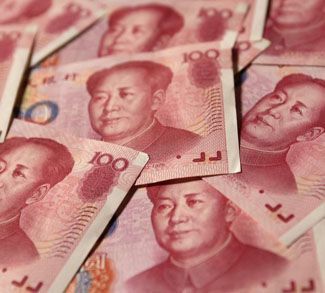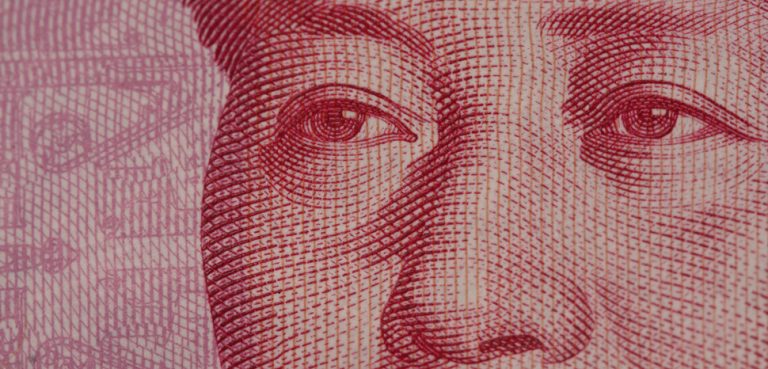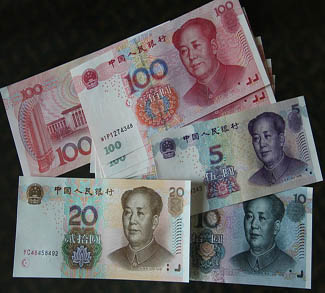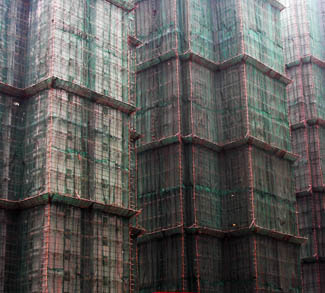A corporate default is rarely reason to celebrate, but nor is it always a sign of impending crisis. The recent declaration by Shanghai Chaori Solar Energy Science and Technology that it could not make a $14.5 million interest payment is bad for the company and its bondholders, but not necessarily for China. Several analysts have erroneously labeled this as China’s “Bear Stearns moment” whereby the failure of one entity portends a broad breakdown in the financial system.
As with most matters surrounding China, any sign of stress in the burgeoning country is treated with fearful hysteria by certain sections of the Western media. That is not just the fault of the West, but also a reflection of the paucity of information from China. There are reasons for anxiety over the world’s second largest economy, but this missed bond payment is not one of them.
While Chaori is the first onshore Chinese corporate default since the regulation of the market in 1997, many more would have likely happened by now if the government had not provided generous assistance to avoid such consequences of a liberalized financial system. But it’s not known for sure. This is why the government’s standing aside and allowing Chaori to default should be regarded as an indicator of progress in China’s slow transition to an open marketplace.
The inability of Chaori to make payments reflects weakness in the company and China’s long-struggling solar industry. It does not indicate any systematic weakness in the national economy. Moreover, the default did not come as a surprise to analysts. Chaori’s difficulties have been flagged for some time and problems in the sector were highlighted in the past, with China’s once-largest solar firm, the US-listed Suntech, defaulting on bonds last year.
In a worst case scenario Chaori could default on $163 million, but that is hardly substantial given the scale of China’s $14 trillion corporate debt market. Defaults on corporate debt are not unusual. Even in 2007, before the Western world’s financial turmoil, there were defaults on agency-rated debt in the US that totaled more than $5 billion. Investors take a risk any time they purchase a financial instrument, and the inability of a struggling company to repay its debts is part of the system. It is vital that corporate defaults are allowed to occur so that markets can efficiently weed out zombie companies.
Panic is understandable when defaults become widespread, but there is no evidence of that in China. Instead, there are reasons to think that the Chaori default could strengthen China’s corporate debt process. Until now, the system had never dealt with bankruptcy proceedings or wrangled with the pecking order of bondholders; aspects of the market that are undesirable but a component nonetheless. The default may also give reckless investors reason for pause, and other struggling companies may be more inclined to disclose their limitations now that it is apparent markets won’t collapse when defaults are announced.
Above all, China’s comfort with the default indicates a growing confidence in opening up its own system. The government didn’t feel the need to offer a bailout and is content to live with the consequences of corporate defaults and the accompanying media hype. Beijing’s acceptance of Chaori’s difficulty coincides with a tolerance for greater exchange rate fluctuations in its formerly rigid currency. The renminbi, which has historically moved within tight ranges, has been allowed to trade with increased volatility over the past month, likely indicating a recent acceptance for market forces.
Of course, as with many aspects of Chinese policy the extent of the government’s role in market operations cannot be determined with certainty. But there is little doubt that some improvement has been made in opening up to outside influences, and it is important that these transitions are done gradually. The government is in the midst of undertaking a profound shift in its economic model, transitioning from a reliance on exporting cheap goods to sustainable consumption in which growth is generated by domestic spending.
Changing an economic model presents challenges and in China’s case they are clearly evident.
To rely on domestic consumption, the nation’s finances must be in a healthy position. However, there are signs of an over-reliance of borrowing, with China’s overall debt-to-GDP level jumping more than 80% since 2008. The level now stands at 210%, a number lower than many advanced economies, but its rapid increase is cause for concern. History has shown that similar credit expansions in emerging nations have resulted in financial crises as the flood of investment distorts asset prices.
But there has never been a test case like China. It can be argued that it has the infrastructure and resources to cope with the swathes of borrowed money. This seems to be the attitude of China’s policymakers, as reports this week indicated the central bank was prepared to cut reserve requirement ratios for banks if growth shows signs of falling below its 7.5% target. If implemented, banks would have to keep less in reserves and will be free to lend more. Facilitating more credit must be done carefully, but the current reserve requirement of 20% is relatively conservative and any cut figures to be limited. Moreover, aside from spurring additional economic activity, this move also aims to dampen demand for the sizeable shadow banking sector.
Encouragingly, China also has plans to liberalize interest rate markets, effectively allowing banks to offer savers more attractive yields. The imposed ceiling is currently 3% annual interest for benchmark one-year household deposits and just 0.35% on demand deposits. Allowing banks to introduce more competitive rates should boost saving and further lessen reliance on the shadow banking sector.
Moving towards open markets is a delicate process that calls for incremental steps while trying to maintain a careful balance between economic growth and sustainable reform. Along with the Chaori default, there will be plenty more hiccups along the way as the increasingly liberalized financial system matures and adjusts to market forces. Some of the obstacles could be potentially damaging, but a missed $14.5 million payment in a $14 trillion market is not one of them.




